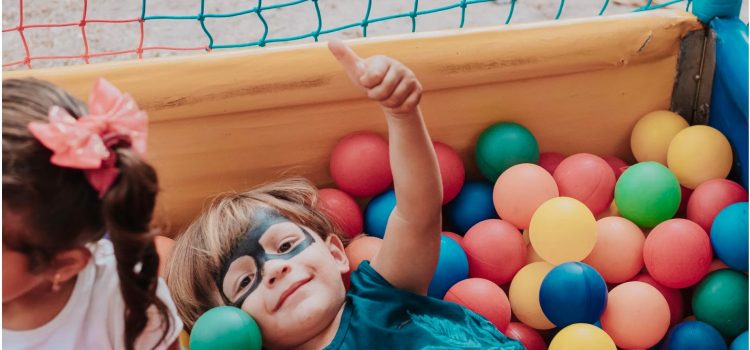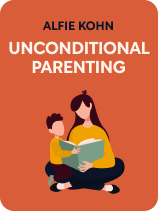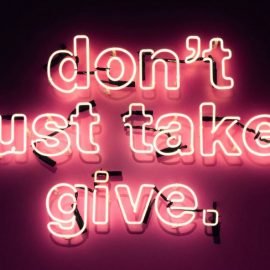

This article is an excerpt from the Shortform book guide to "Unconditional Parenting" by Alfie Kohn. Shortform has the world's best summaries and analyses of books you should be reading.
Like this article? Sign up for a free trial here .
What is the best parenting advice for raising children today? What’s most important to know if you want to raise confident, happy kids?
In Unconditional Parenting, author and lecturer Alfie Kohn argues that we should throw away the standard parenting rulebook and replace it with a new approach built on unconditional support, acceptance, and understanding. Kohn’s approach requires rethinking standard parenting, which traditionally emphasizes a system of punishment and rewards when raising children.
Read on to learn Kohn’s best parenting advice and why following standard parenting advice might be risky.
The Best Parenting Advice? Rethink How You Discipline
Kohn notes that most parents have similar long-term goals for their children: They want them to be happy, independent, confident, and creative. But he cautions that it’s easy to forget about these goals in the short term and shift your focus to whether or not the child is being “good” (doing what you want them to do) or “bad” (doing something else) at any given moment.
According to Kohn, mainstream parenting advice focuses almost exclusively on discipline: how to use rewards to encourage good behavior and punishments to discourage bad behavior. He argues that even seemingly the best progressive parenting advice (for example, doling out attention, affection, and praise when you catch your child behaving well or putting a misbehaving child in a time-out) still buys into an overall parenting framework built around rewards and punishments. This framework, he says, is outdated, and it may even be damaging your children.
Conditional Parenting Discipline: Using Punishments
Parents commonly use punishments (or the threat of punishments) to discourage behavior they see as problematic. Some of Kohn’s best parenting advice invites readers to redefine punishment more broadly than most common definitions: He includes isolation and the withdrawal of parental attention alongside physical punishments and temporarily not allowing a child to do something she enjoys.
What Counts as a Punishment?
A punishment is any deliberate attempt to make a child suffer following “bad” behavior. Punishments include:
Physical punishments such as spanking, slapping, or handling a child roughly when they misbehave. These punishments are especially damaging because they teach children that it’s okay to use violence to solve problems, which may be why they’re also linked to aggressive behavior. According to Kohn’s parenting advice, even in communities in which parents believe spanking is best (and in which parents are more likely to justify it with, “It didn’t do any damage to me”), children still show adverse outcomes.
(Shortform note: Many parents make the decision not to spank their children on philosophical and moral grounds. For those who want hard evidence one way or the other, the picture is extremely murky. For example, aggression outcomes may be influenced by the child’s gender: One study found that 1-year-old male babies who were spanked are more likely to be bullies at age 3, while female babies who were spanked at the same age are less likely to be bullies. Some researchers even argue that Sweden’s spanking ban, enacted in 1979, increased crime, violent child abuse in particular, in subsequent decades.)
Criticism. Kohn argues that criticizing kids is damaging to their self-esteem in the long run. His best parenting advice recommends that if you have to criticize, try to do it as little as possible and always make sure the criticism is specific (for example, “Pulling the cat’s tail hurts her” rather than “Don’t hurt animals”).
(Shortform note: Research supports Kohn’s warning about criticizing children. Criticism from parents can lead to depression in children, and parents also typically underestimate how often they criticize their kids.)
“Love withdrawals,” such as time-outs, ignoring the child, and briefly pulling back emotionally from the child. Kohn’s advice says this method is not the best and leads to inflicting emotional pain on the child and that they can be even more damaging than physical punishments.
(Shortform note: Kohn’s framing of these techniques as “love withdrawals” is one of his more controversial opinions. Though they’re not recommended for very young children, time-outs are still widely recommended as a disciplinary measure—including by the CDC, which claims that they work not because children are afraid of losing love but because they hate to be bored.)
Taking away “privileges” (things the child enjoys). Kohn argues that taking away privileges isn’t ideal because it doesn’t directly link the problem behavior with the consequence—unlike, for example, making a child clean up the colorful crayon mural she’s drawn on the walls.
(Shortform note: Some parenting advice experts recommend that the best way to teach kids is by allowing a child to experience the “natural consequences” of their behavior. For example, allowing your child to get wet if he doesn’t put on his raincoat, even arguing that doing this increases kids’ intrinsic motivation to avoid uncomfortable consequences. However, despite his overall inclination toward non-intervention, Kohn warns against this strategy in most cases. He says that the thing children are most likely to learn from this setup is that you could have helped them but chose not to.)
Why You Should Stop Punishing Children
According to Kohn’s parenting advice, using punishments with children is not the best form of discipline because:
1. They don’t help the child to develop internal moral standards. Punishments don’t teach children to take responsibility for their behavior, repair relationships, or fix the problems they’ve caused.
2. They can be counterproductive: A child’s negative reaction to a punishment (for example, yelling or crying) might prompt the parent to punish more, locking both into a vicious cycle of punishments with increasing stakes.
3. They misdirect children’s attention, causing them to focus on the punishment itself and their anger about it rather than the problem behavior.
4. They cultivate either rebellion or over-compliance in the long term. Children whose parents rely on harsh punishments usually turn out in one of two ways: They stop questioning authority in a healthy way and end up completely disempowered, or they deliberately rebel. And in the case of rebellion, punishments simply encourage children to focus on not getting caught, rather than discouraging the behavior itself.

———End of Preview———
Like what you just read? Read the rest of the world's best book summary and analysis of Alfie Kohn's "Unconditional Parenting" at Shortform .
Here's what you'll find in our full Unconditional Parenting summary :
- How to raise kids to be self-confident, independent, and compassionate
- Why you should throw away the standard parenting rulebook
- Why rewards and punishments cause more harm than good






